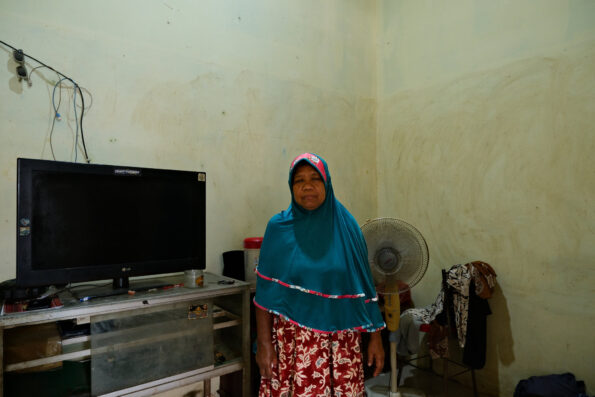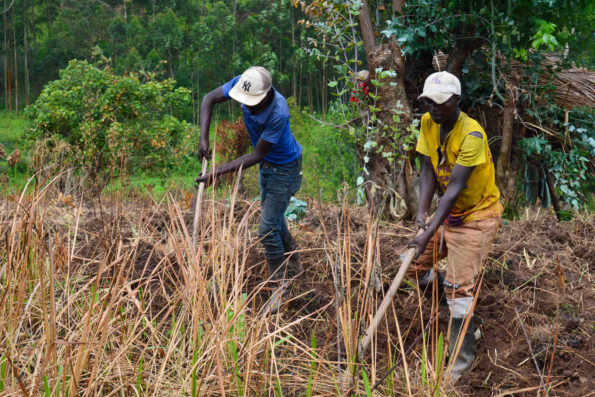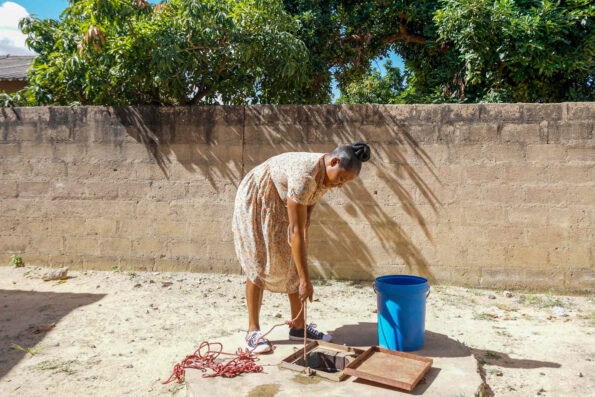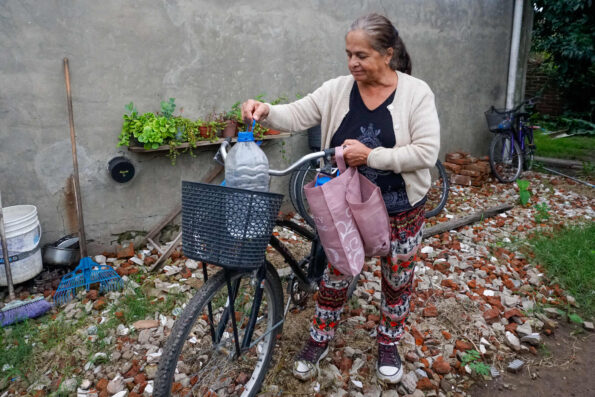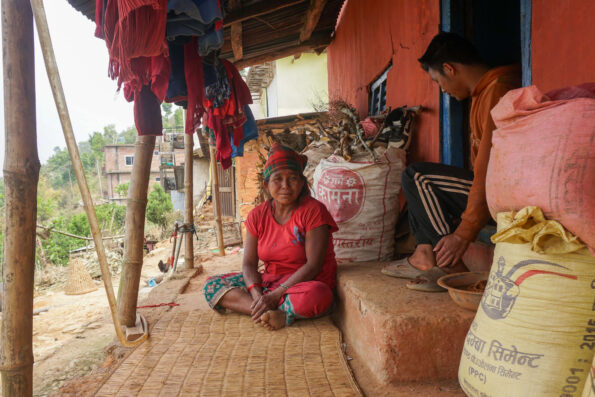
Edna Namara, GPJ Uganda
Hoping to dispel negative beliefs surrounding cats, Ella Nankoma and her father set up a shelter in 2020 at the family home in Bweyogerere, Uganda.
BWEYOGERERE, UGANDA — Ella Nankoma remembers when, five years ago, a man from her village picked up a stone in the street and hurled it at her black cat as it lounged on Nankoma’s veranda. The man missed it by a whisker, and the cat ran for safety. Enraged, a then-teenage Nankoma confronted the man, who asked her why a cat — a black one at that — shouldn’t be stoned. Seeing the commotion, three passersby came to the man’s defense, concluding Nankoma was a “strange girl.”
The incident illustrates how many Ugandans see cats: as carriers of demons and diseases, wicked creatures used in witchcraft. Nankoma, now 24 years old, is fighting to change these attitudes — one kitten at a time.
As one of the few animal activists in Uganda, she is the proud caretaker of about 40 rescued cats in her village of Bweyogerere, in Kampala, the capital. “I want to give them a home,” she says. “They are living creatures, they deserve a home, food and safety.”
Nankoma’s rescue efforts began in 2020 while she was pursuing a degree in Women and Gender Studies at Makerere University. With the COVID-19 lockdown, she left her student accommodation and moved back in with her father, Tom Ketta. Nankoma began bringing home street cats, despite Ketta’s resistance — growing up, he was told cats shed fur that transmits tuberculosis. “Even as I supported her, this feeling would creep in my mind,” he says.
Later that year, when Nankoma’s classes resumed, she moved back near campus, taking one cat, Penny, with her. “My roommate fled,” she says, laughing. Ketta offered to take care of the rest of the cats. “I bonded with them in her absence,” he says.



Now, Ketta is Nankoma’s greatest cheerleader. Over the past two years, he helped her set up a cat house in the garden at the family home, with lounge chairs and two cat trees; they named it “Uganda’s Cat Cradle.” About 90 cats have passed through Nankoma’s hands during this period, she says. Many have been adopted, while 12 died.
Nankoma says she often rescues cats showing signs of torture. Although Uganda has a law against animal cruelty, punishment is light — a mere 1,000 Ugandan shillings (28 cents) or a maximum of three months in prison — and it’s rarely enforced.
Luke Owoyesigyre, deputy spokesperson for the Uganda Police Force in the Kampala Metropolitan Area, says that, at least in the capital region, the police have never made any arrests related to animal abuse.
“The police do not seem to understand the rights of animals, that’s why they do not arrest animal harassers,” says Kiconco Dorcus, the former assistant commissioner in charge of veterinary regulation and enforcement at the Ministry of Agriculture, Animal Industry and Fisheries.
Likewise, not many animal defenders operate in the country. The Uganda Society for the Protection and Care of Animals is one such group. Funded by sponsors and donations, the nongovernmental organization has been rescuing injured and abandoned animals since 1996 and currently hosts 250 dogs and 30 cats, says manager Alex Ocheing. Staff members often rescue animals exhibiting signs of torture and cruelty, he says.


While she doesn’t have a formal organization yet, Nankoma does keep Facebook and Instagram pages with minute details about her pets. Runt has an autoimmune disease; Gray is the wildest, but very playful; Gundi has a skin disease and an eye problem; Rudy, a dwarf, is sensitive; Lucky Toad has been raised in Nankoma’s Cat Cradle since birth, which gives him “near-human” qualities, she says.
Nankoma relies on the help of veterinarian Alex Mugisa, who treats the cats for a small fee and sometimes for free. “She is challenging the norms,” he says. “She is also helping tidy the city, ridding it of homeless cats that would roam the streets.”
Collin Rukundo, a 29-year-old tech entrepreneur, adopted Pike from Nankoma’s Cat Cradle in April 2021 after coming across her Facebook page. “I love animals very much, and I was raised around them,” he says, “so I quickly asked her if I could give a home to one of the cats.” Rukundo praises Nankoma’s initiative. “People underestimate the lives of animals and think they don’t deserve a good life, but here is a young lady [changing] this narrative.”
Not all Ugandans are touched by Nankoma’s animal activism. Babirye Fausta, a believer in traditional customs who works at Owino market in Kampala, says that Nankoma “might be carrying a transitive demon from her forefathers. This is a spiritual calling.”
Pastor Martin Ssempa, the founder of Kampala’s Makerere Community Church, says cats are a creation of God but doesn’t rule out the fact that they can be used as objects of witchcraft. He has more than six cats, which he keeps as pets to deal with rats at his farm. “They later preferred domestic life,” he says, “and they are quite expensive to maintain.” He says having a white spouse made it easier to shed traditional beliefs about cats.
Nankoma’s dream, she says, is to expand her cradle into a larger shelter. Her father has offered her a 5,000-square-meter (53,820-square-foot) plot, but she says she needs funding to set it up. “I will need a standby veterinary officer for them, [as well as] accommodation and salary for the staff.”
As Nankoma speaks, a group of children spot a stray cat and bring it to her. “It’s easier to change children,” she says. “The future with cats is secured [if] they grow up loving them.”
Edna Namara is a Global Press Journal reporter based in Kampala, Uganda.



